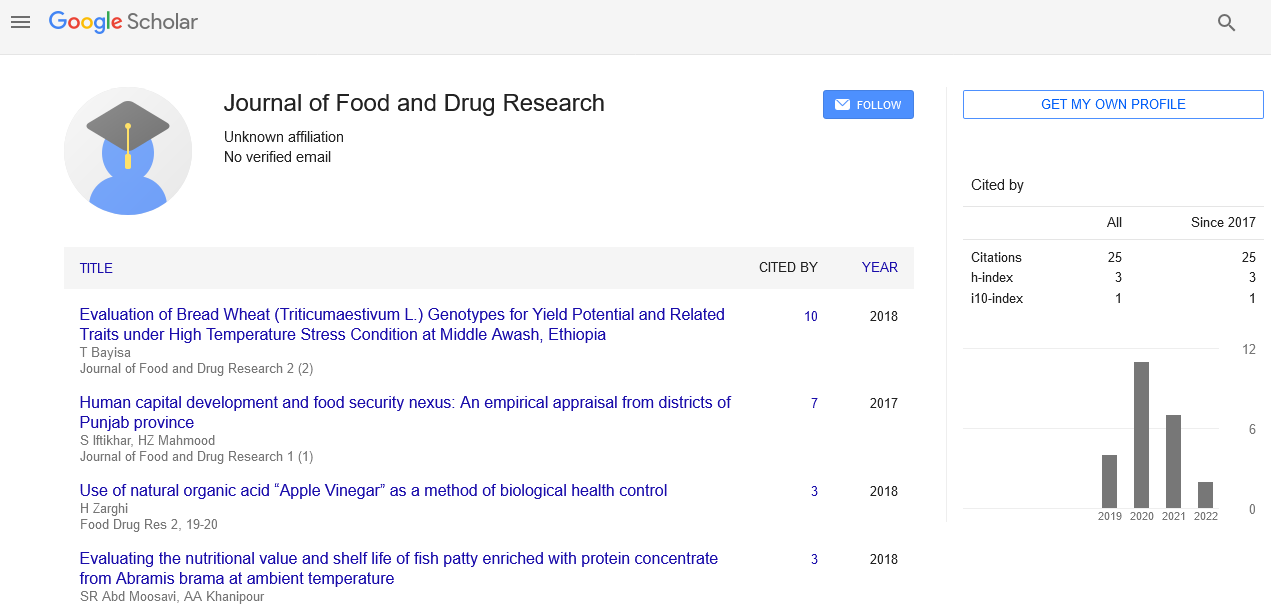Allergic drug reactions on antibiotics
Received: 05-Nov-2021 Accepted Date: Nov 19, 2021; Published: 26-Nov-2021
This open-access article is distributed under the terms of the Creative Commons Attribution Non-Commercial License (CC BY-NC) (http://creativecommons.org/licenses/by-nc/4.0/), which permits reuse, distribution and reproduction of the article, provided that the original work is properly cited and the reuse is restricted to noncommercial purposes. For commercial reuse, contact reprints@pulsus.com
Commentary
Antibiotics are a common cause of life-threatening drug reactions that are considered unintentional, including anaphylaxis, as well as specific organ reactions and severe cutaneous. However, many antibiotic-labelled allergies are not known or remembered by the patient, skin reactions that are not related to drug sensitivity, drug interactions with infection, or drug intolerance. While such reactions pose a insignificant risk to patients, they currently present a global threat to public health. Antibiotic resistance labels cause the removal of first-line antibiotics prophylaxis and treatment. The penicillin label of allergies, in particular, is associated with an increase in the use of broad-spectrum antibiotics and non-β-lactam antibiotics, leading to an increase in adverse events and antibiotic resistance..
Antibiotics can cause adverse drug reactions (ADRs) and hypersensitivity reactions (HSRs) through a variety of methods. Antibiotics are often listed in the electronic health record, leading to changes in the care of future infectious diseases. Improperly prescribed allergies may result in the use of unnecessary or low-dose antibiotics, which endanger patient safety and public health. Despite these threats, histories related to documented allergies are rarely compiled, or acted upon by a health care team. Ideally, patients at low risk for allergies may have their allergies tested without the intervention of a specialist, and high-risk patients will be referred for diagnostic testing and have possible mechanisms / reactions involved. Although other allergies investigations are a proven diagnostic test approved by governing bodies worldwide, many immunologically linked drug and drug tests are still under investigation.
Although antimicrobial ADRs are commonly reported, sensitivity to immunologically mediated hypersensitivity is rare and true IgE-mediated antibiotic allergy is confirmed to only a few. For those with true HSR antibiotics, special appropriate tests are indicated to prevent future ADRrelated diseases and deaths. These tests include prescribing the drug that is most likely to be involved in resistance, the methods possible, and potential contraindications that should be avoided in the future. Despite the threat of real antimicrobial resistance, the greatest burden lies with those who report penicillin allergy. These patients have many life-threatening side effects that start with the prevention and treatment of less or more unnecessary infections. Given the unrelated association with penicillin allergies, healthrelated illnesses and multidrug-resistant substances, the ability to respond to penicillin and other antiretroviral labels should increase worldwide in all health care settings. To address this threat, international efforts may better define risk groups, determine the appropriate use and method of testing penicillin resistance, and identify staff to distribute tests in areas where allergies and antibiotics vary. Along with the implementation plan, a health care provider and patient education and support services are needed.
Doctors often have to prescribe antibiotics for patients who are reported to have antimicrobials. For penicillin, the sensitivity of penicillin skin tests to predict severe allergic reactions is also excellent. For some β-lactam antibiotics, a penicillin skin test helps to reduce the sensitivity of the β-lactam ring. In some antibiotics, a patient’s history remains a very useful tool in determining whether a serious reaction is possible with further exposure to medication. The reuptake between penicillins and second- or thirdgeneration cephalosporins (with the exception of cefamandole) is probably no higher than the interaction between penicillins and other antimicrobials. If a patient has suspicion of immunoglobulin E-mediated antibiotic allergies, consideration should be given to treatment that alleviates the allergy, if the effectiveness of other antibiotics is in doubt. For the treatment of serious illnesses, it is usually possible to safely use the selected antibiotic despite a history of allergic reactions to antibiotics.
Acknowledgements
None
Conflicts of Interest
None






